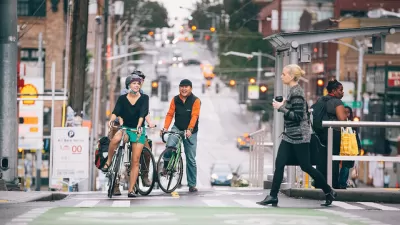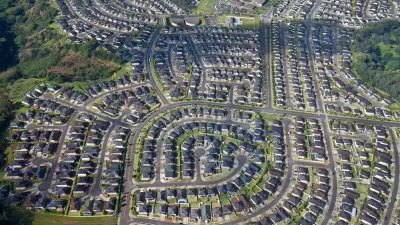Hundreds of townships in Indiana serve fewer than 1,000 people each, prompting some government officials to call for consolidation to reduce wasted resources.
"[B]ased on 2009 population estimates, nearly one in five of the state's townships serve fewer than 1,000 residents -- and more than half (588) serve fewer than 2,500 people.
Not surprisingly, an Indianapolis Star analysis of November's trustee elections shows that the winner often needed to sway fewer voters than a high school class president. And in some cases, one vote would be enough: The Star also found a high number of trustee races were uncontested.
With lawmakers tackling several aspects of township reform, one issue they will confront is whether to force certain townships to consolidate."
But others argue the small sizes help foster a more vibrant democracy in those communities.
FULL STORY: Do tiny townships make sense?

Alabama: Trump Terminates Settlements for Black Communities Harmed By Raw Sewage
Trump deemed the landmark civil rights agreement “illegal DEI and environmental justice policy.”

Planetizen Federal Action Tracker
A weekly monitor of how Trump’s orders and actions are impacting planners and planning in America.

Why Should We Subsidize Public Transportation?
Many public transit agencies face financial stress due to rising costs, declining fare revenue, and declining subsidies. Transit advocates must provide a strong business case for increasing public transit funding.

Understanding Road Diets
An explainer from Momentum highlights the advantages of reducing vehicle lanes in favor of more bike, transit, and pedestrian infrastructure.

New California Law Regulates Warehouse Pollution
A new law tightens building and emissions regulations for large distribution warehouses to mitigate air pollution and traffic in surrounding communities.

Phoenix Announces Opening Date for Light Rail Extension
The South Central extension will connect South Phoenix to downtown and other major hubs starting on June 7.
Urban Design for Planners 1: Software Tools
This six-course series explores essential urban design concepts using open source software and equips planners with the tools they need to participate fully in the urban design process.
Planning for Universal Design
Learn the tools for implementing Universal Design in planning regulations.
Caltrans
Smith Gee Studio
Institute for Housing and Urban Development Studies (IHS)
City of Grandview
Harvard GSD Executive Education
Toledo-Lucas County Plan Commissions
Salt Lake City
NYU Wagner Graduate School of Public Service





























